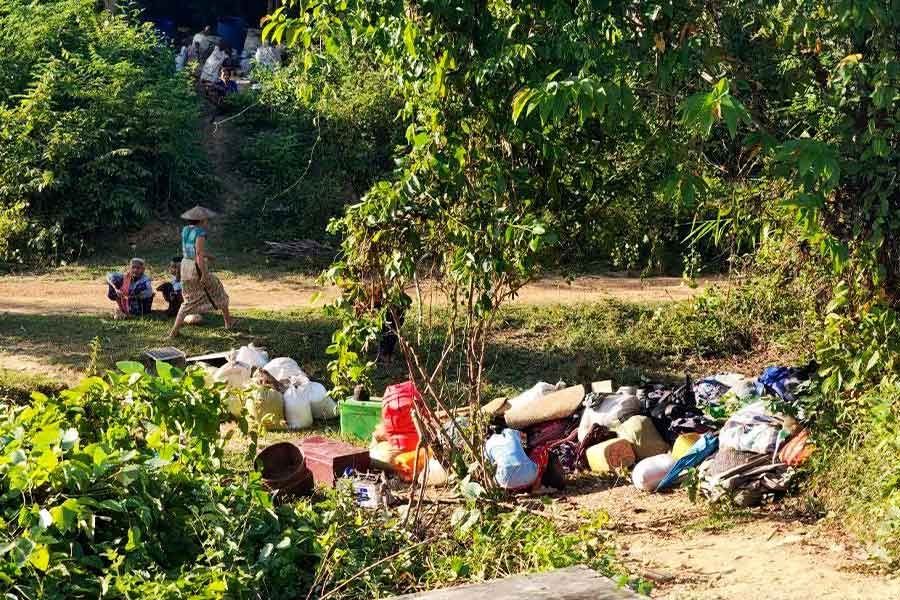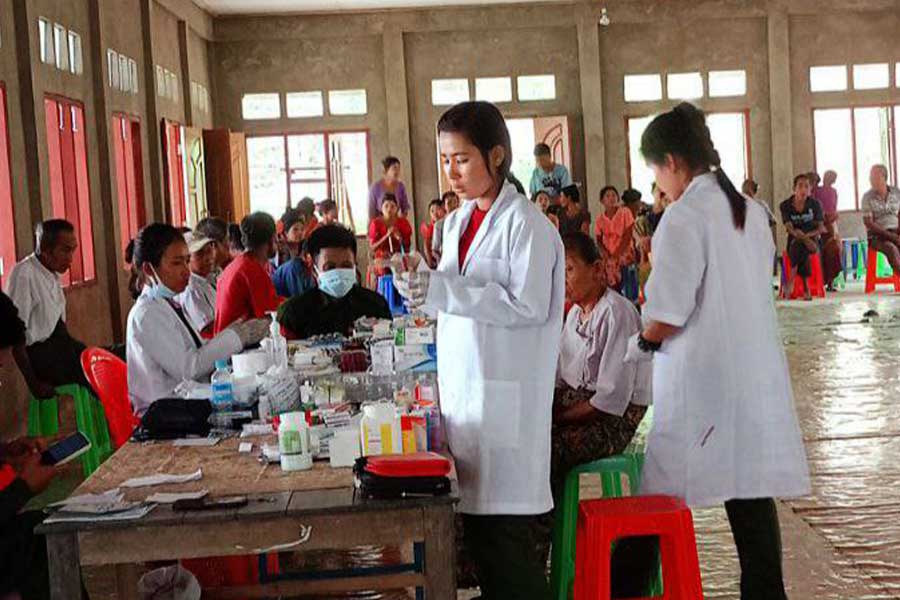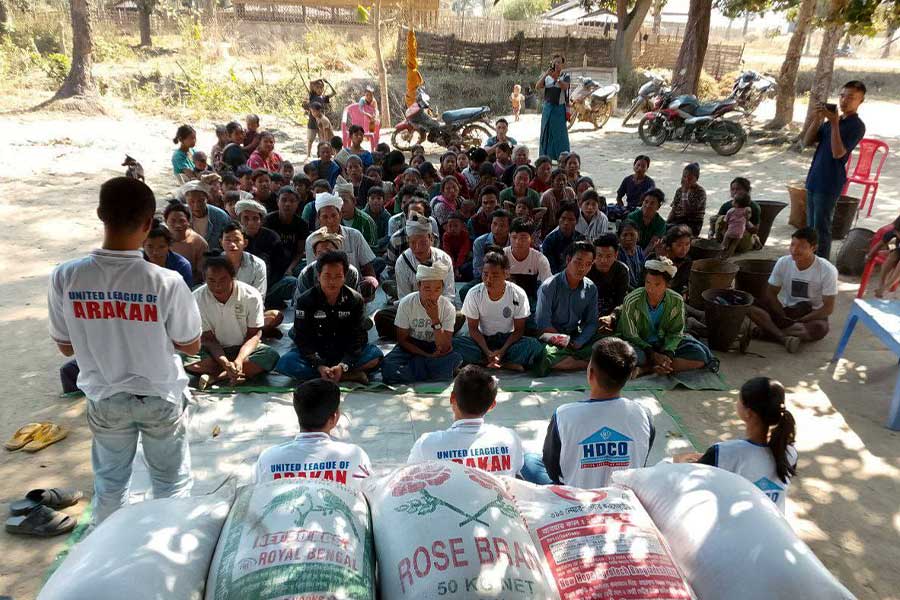- 15 mass casualty incidents from regime airstrikes reported in Arakan State since 2023
- Kyaukphyu IDPs forced to flee again amid junta airstrikes and artillery attacks
- New Diplomatic Movements Between Bangladesh’s New Government and the Arakan Public Administration
- Junta claims over 24 million ballots cast in 2025 poll, cites strong youth turnout
- ULA expands HIV prevention, healthcare services for sex workers in AA-held areas
UN says local and international organisations still restricted in Arakan State
Restrictions on local and international organisations have caused many difficulties for internally displaced people (IDPs).
07 Mar 2023

DMG Newsroom
7 March 2023, Maungdaw
The UN Office for the Coordination of Humanitarian Affairs (UNOCHA) says access for local and international nongovernmental organisations providing humanitarian assistance to urban parts of Arakan State’s Maungdaw and Buthidaung townships is still restricted, and aid workers are still not allowed to go to most of the rural areas.
Relief workers from local and international nongovernmental organisations (NGOs) were allowed to go to Sittwe and Pauktaw townships after the military and Arakan Army (AA) reached an informal ceasefire on November 26, 2022, but access for local and international NGOs to Maungdaw and Buthidaung townships remains restricted, UNOCHA said in a statement on March 4.
U Aung Thaung Shwe, a former Lower House lawmaker in Buthidaung Township, said the restrictions on local and international organisations providing humanitarian assistance are a deliberate act.
“When there is no fighting in Arakan State, local and international organisations should be allowed to travel to help those in need. These restrictions on local and international organisations violate the peace commitment. On the other hand, it can be said that the military regime does not care about the public and discriminates against these people,” the ex-legislator added.
After the latest ceasefire between the military and AA, most of both land and water routes in Arakan State were reopened, and relief workers were able to access more restricted areas. Humanitarian partners were able to slowly resume operations in December 2022, and provide life-saving assistance to those in need, according to the UNOCHA statement.
While local and international organizations have resumed formal and informal education activities in Arakan State, and humanitarian aid workers have been able to visit many townships to assess the situation facing conflict-affected populations and displaced people, physical and bureaucratic obstacles continue to prevail in Arakan State and southern Chin State, UNOCHA said in the statement.
U Maung Soe Than, from the Yan Aung Myay displacement camp in Buthidaung Township, said restrictions on local and international organisations have caused many difficulties for internally displaced people (IDPs).
“Previously, UN agencies and international organisations have provided us with blankets, warm clothes, tarpaulin, household utensils, and food items. We are now facing various difficulties as access to local and international organisations is restricted. We are struggling to make ends meet as job opportunities are scarce and rice prices are skyrocketing,” he added.
DMG attempted to contact Arakan State Minister for Security and Border Affairs Colonel Kyaw Thura and Arakan State military council spokesperson U Hla Thein regarding the regime’s restrictions on local and international organisations, but they could not be reached.
As of February 20, more than 230,000 people remained displaced across Arakan State, according to some of the latest UN figures.
The total number of IDPs in Arakan State, including those who remained at displacement camps due to 2018-2020 fighting between the military and Arakan Army, stood at about 90,000 early this year; and over 140,000 Kaman and Muslims are among those who remained at displacement camps, according to a UNOCHA report.

















